After Elianne's murder, girls were asking if they needed to carry a knife
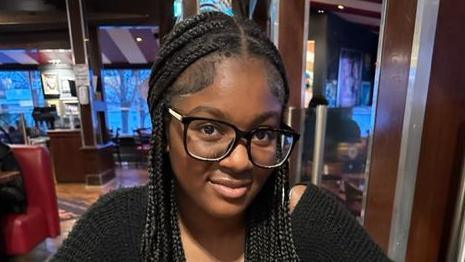
Elianne Andam was stabbed to death after meeting up with friends before school
- Published
On a September morning, 15-year-old Elianne Andam met up with her friends in the south London suburb of Croydon before school, so that one of the girls could get back her teddy bear from a boy with whom she had broken up.
Just over an hour later, Elianne was dead, after that same boy, Hassan Sentamu, had repeatedly stabbed her with a kitchen knife.
The community was stunned. Flowers and cuddly toys were left at the spot where she died. Hundreds lined the streets to take part in vigils, with the rapper Stormzy among the mourners.
"For a long time, we thought knife crime involved young black males," explains former Safer Neighbourhood chair Donna Murray-Turner. "I think we thought these things happen after school. And actually, these things can happen to a child anywhere, at any time."
The savage killing of a schoolgirl on a busy street as commuters were making their way to work has left this London suburb traumatised. Some girls in the borough even began questioning whether they should be carrying knives to help stay safe, according to community workers.
Croydon was already horribly familiar with the trauma of knife crime. In 2021, when teenage homicide was at a record high across London, five out of the 30 young people who lost their lives were killed in the borough.
But many had quietly hoped that things were starting to change.
A project called MyEnds, funded by the mayor's Violence Reduction Unit, brought community groups together to tackle the underlying causes of crime and build relationships with the police.
In 2022, there were no teenage homicides in the borough.
Elianne's killing, on 27 September 2023, came as a huge shock.
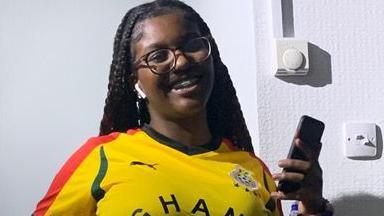
The 15-year-old was stabbed during a row over a teddy bear
"For me, it brought back my own personal feelings and emotions," Tilisha Goupall explains. She lost her brother, Jermaine, to knife violence in 2017. He was also 15 years old, and ambushed on his way home.
She says the news about Elianne "broke" her and left her questioning, "how do we protect our young people now? And is there any hope?"
Alex McLean from One Step Mentoring agrees. "I remember where I was that day. I think it's something everyone remembers, because it was so shocking. It sent shivers down my spine, and I thought, 'what can I do?' There has to be a response to this."
They have both been offering support to Elianne's family, as well as reflecting on what needs to change to protect other young people.
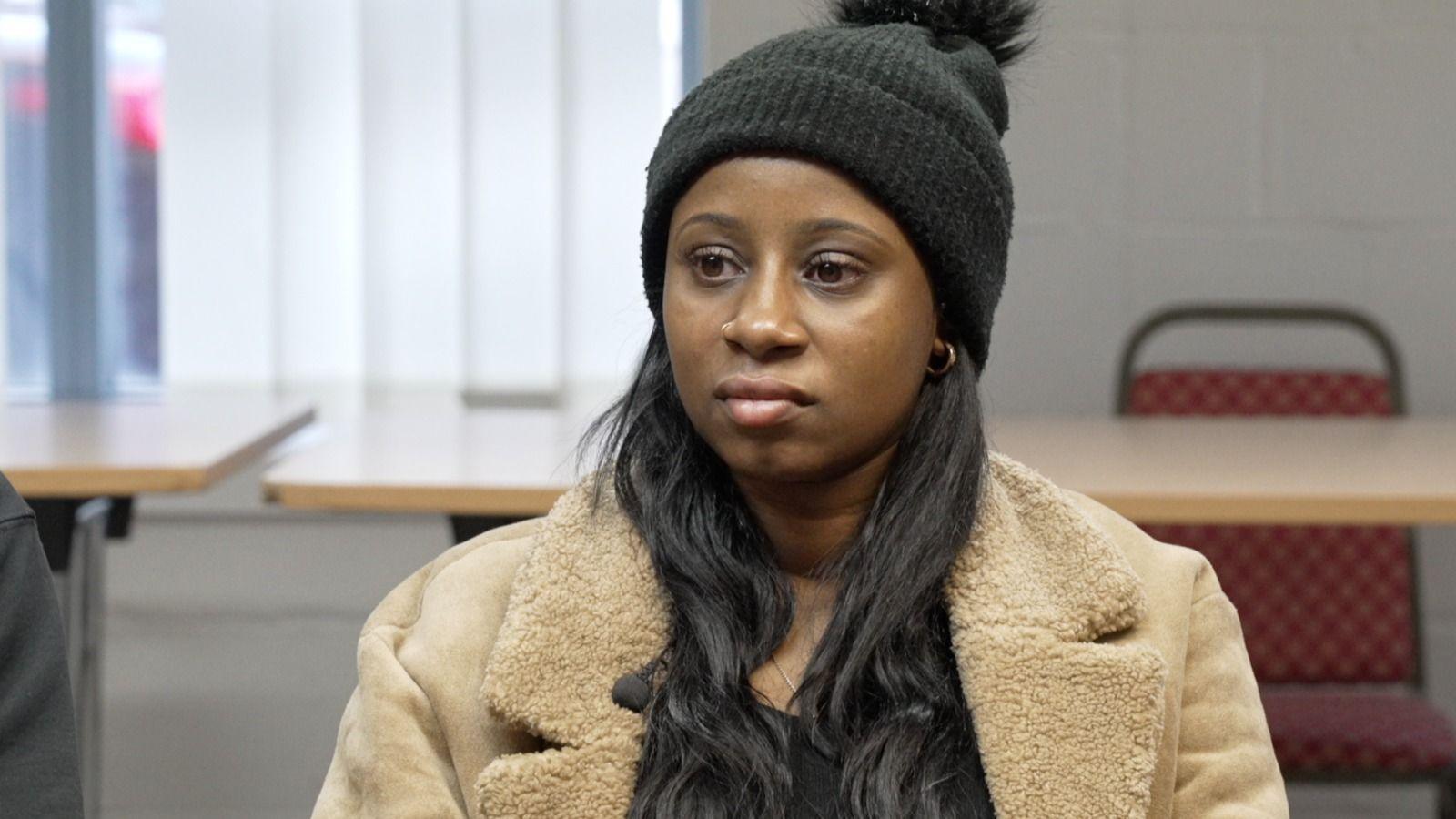
Tilisha Goupall, who lost her brother Jermaine to knife crime, says hearing of Elianne's death "broke" her
Alex believes society has become "desensitised" to the deaths of young men from knife crime.
"I think it became easy to say, 'that's just a male problem, the girls are OK, and they're facing different issues'. What we see now, is this is a wider thing about how young people interact.
"Think about it like this: if we build young people who think it's OK to interact with females in that way, what are we going to have in 10 years?"
He says many of the young men he works with are not being taught to regulate their emotions.
"What happens is, when there's this idea of ego, of shame, of embarrassment, they go into fight or flight mode."
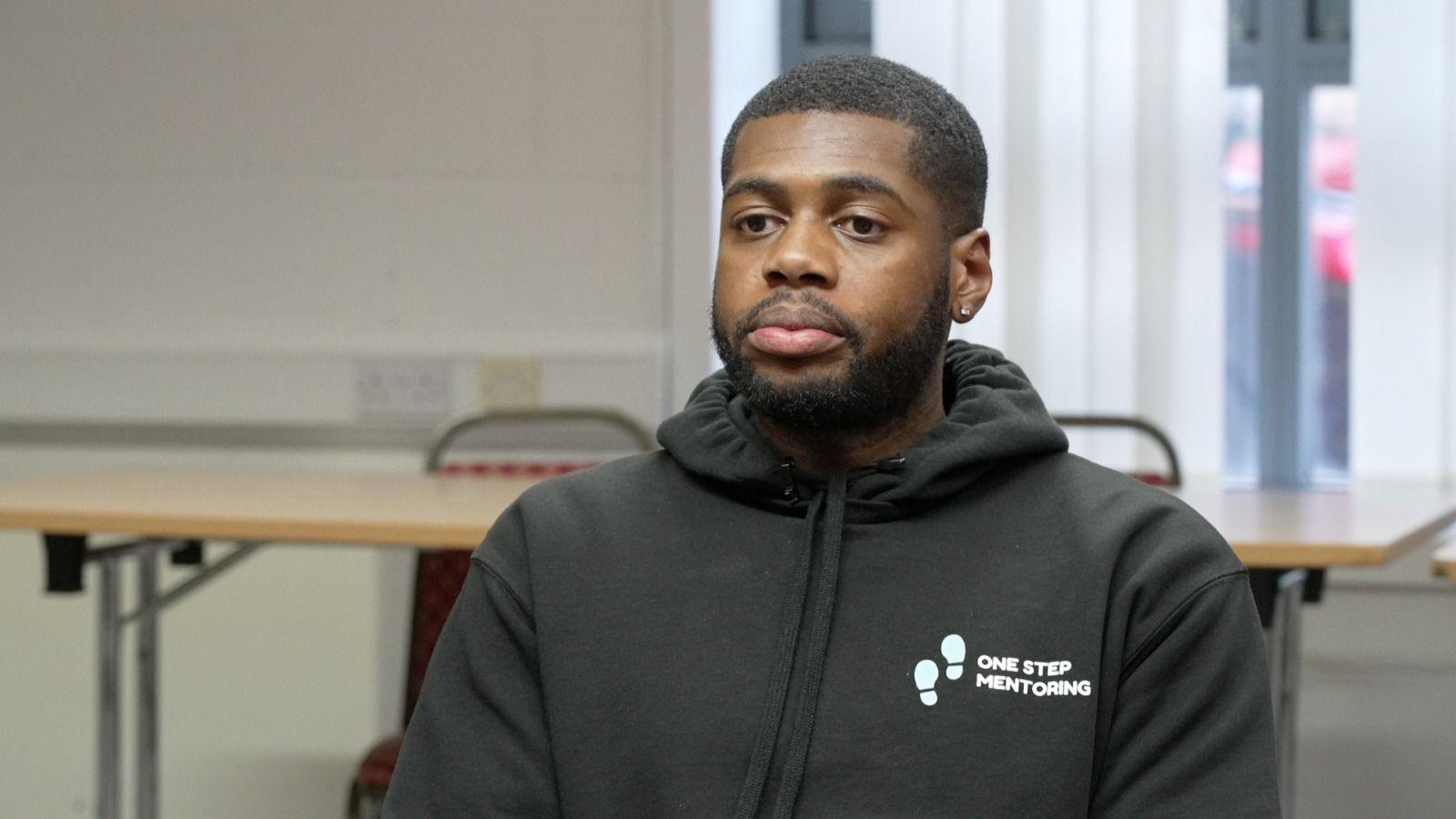
Alex McLean says young men are not being taught how to regulate their emotions
Sentamu, now 18, was 17 when he stabbed Elianne. He admitted her manslaughter but denied murder.
At his trial at the Old Bailey, jurors heard that Sentamu had a deeply troubled childhood, had spent time in foster care and had a history of violent and aggressive behaviour including threatening a child with a knife when he was aged 12, and putting girls in headlocks.
The teenager claimed that his autism spectrum disorder caused him to lose control after Elianne seized back a bag from him, when he refused to hand over his ex-girlfriend's belongings.
The prosecution said Sentamu stabbed Elianne "in a fit of white-hot anger" because he felt he'd been disrespected by the girls the previous day, when they'd teased him and thrown water over him, in an attempt to get him to apologise for swearing at his ex.
"We were just like, I guess, schooling him… telling him off," one of the girls later told police. "Just basically saying, 'you can't speak like that to a woman'."
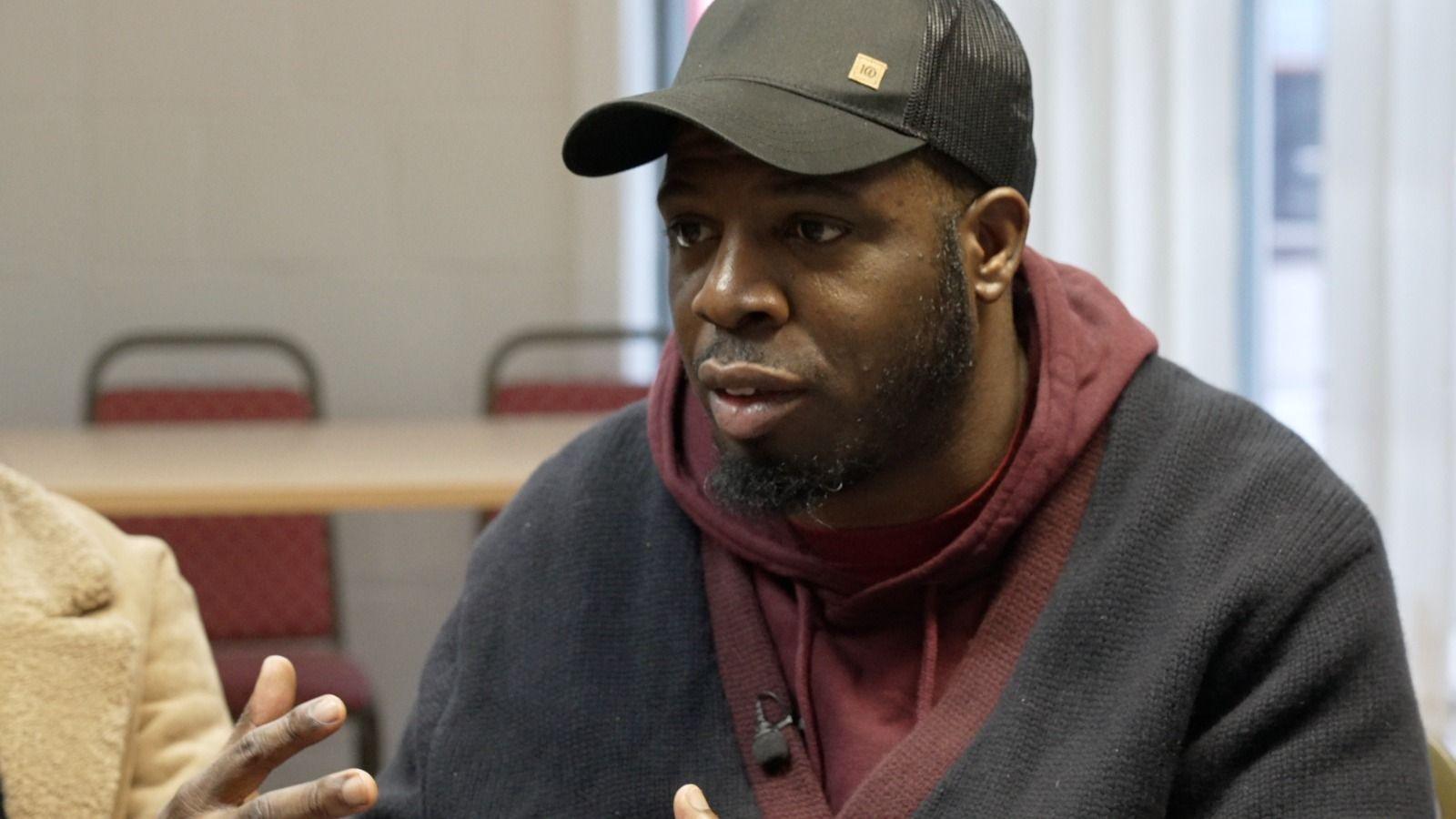
Anthony King says girls began talking about carrying knives to protect themselves following Elianne's death
In the days after Elianne was stabbed, community activist Anthony King tells me he became aware of girls having conversations about how to stay safe, but also about whether they should carry a knife.
Tilisha, who set up the Justice for Jermaine Foundation in her brother's memory and gives talks in schools about the devastation knife crime causes, says it's an issue that girls ask her about.
"They were more interested in, 'what if I was carrying a knife, would I get stopped?'" she says, describing a recent visit. "How would the police officers search me if they were male?"
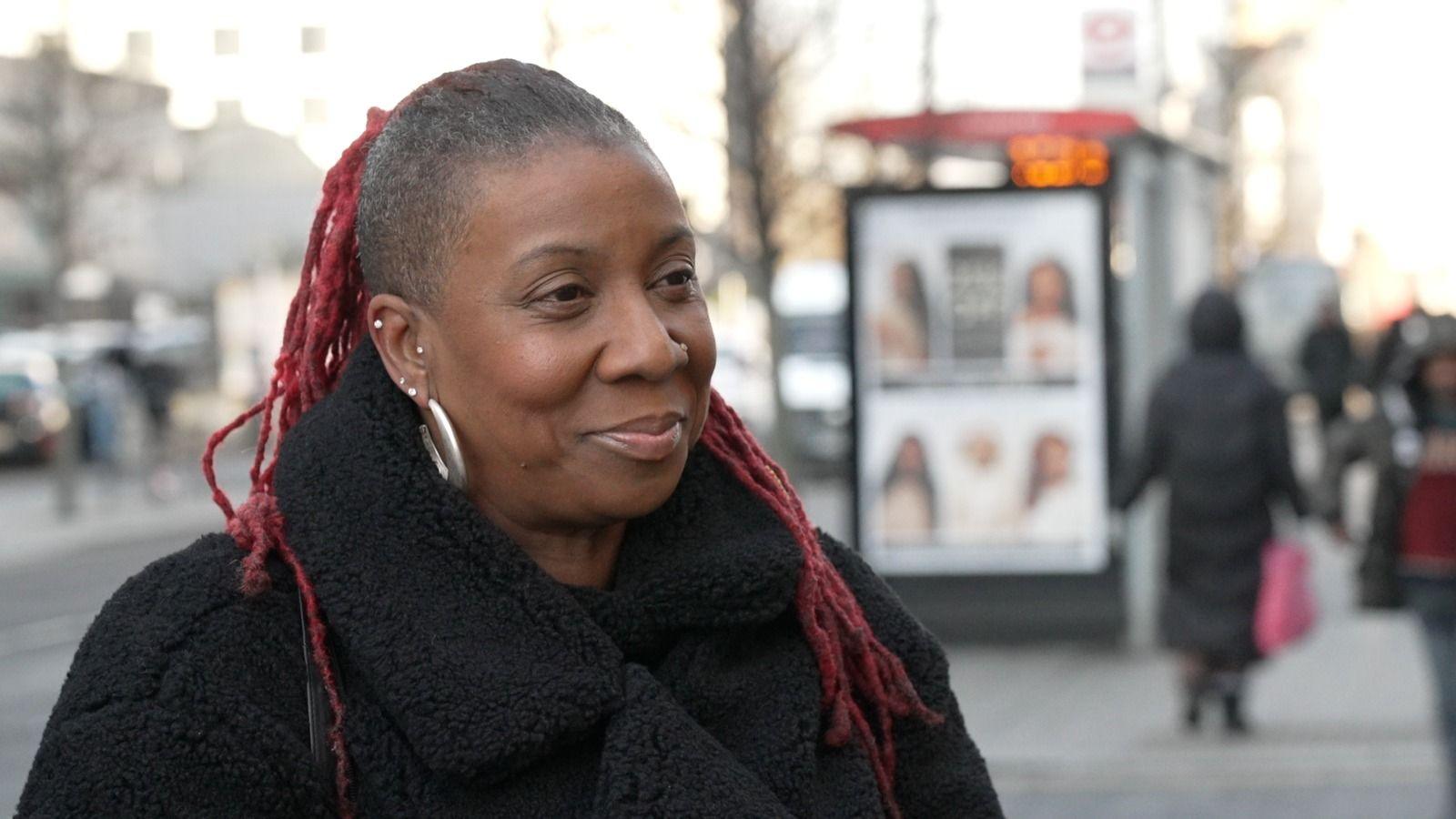
Donna Murray-Turner says the death of Elianne changed the conversation around knife crime and how to tackle it
Although the number of teenagers losing their life to homicide across London fell last year to its lowest in more than a decade, 10 teenage boys were fatally stabbed, and one was killed in a shooting.
Last week, 14-year-old Kelyan Bokassa died after being attacked with a knife on a bus in Woolwich, just three months after he laid flowers for another teenager, 15-year-old Daèjaun Campbell, who had been fatally stabbed nearby.
In Croydon, while there were no fatalities last year, there are calls for more support.
Donna Murray-Turner, who says there needs to be more funding from central government, wants to see more focus on male violence against women, and far more education in schools on healthy relationships and consent.
"Living right now in London, as a parent, is a lottery. Because it doesn't matter if you come from a good home or a bad home, your identity can be mistaken, and your child's life is taken. It is a lottery. We are living in the Wild West."
Alex, Tilisha and Anthony are calling for much earlier intervention and want teaching children about the dangers of knife crime to begin in primary school.
They say young people also need support to find a sense of purpose and opportunity, and that far too many are desensitised to violence.
"Going to funerals is like catching up with friends," says Anthony. "That's the generation we are living in. However, I am optimistic and hopeful, if we can reach children at an earlier stage, then we can save lives."
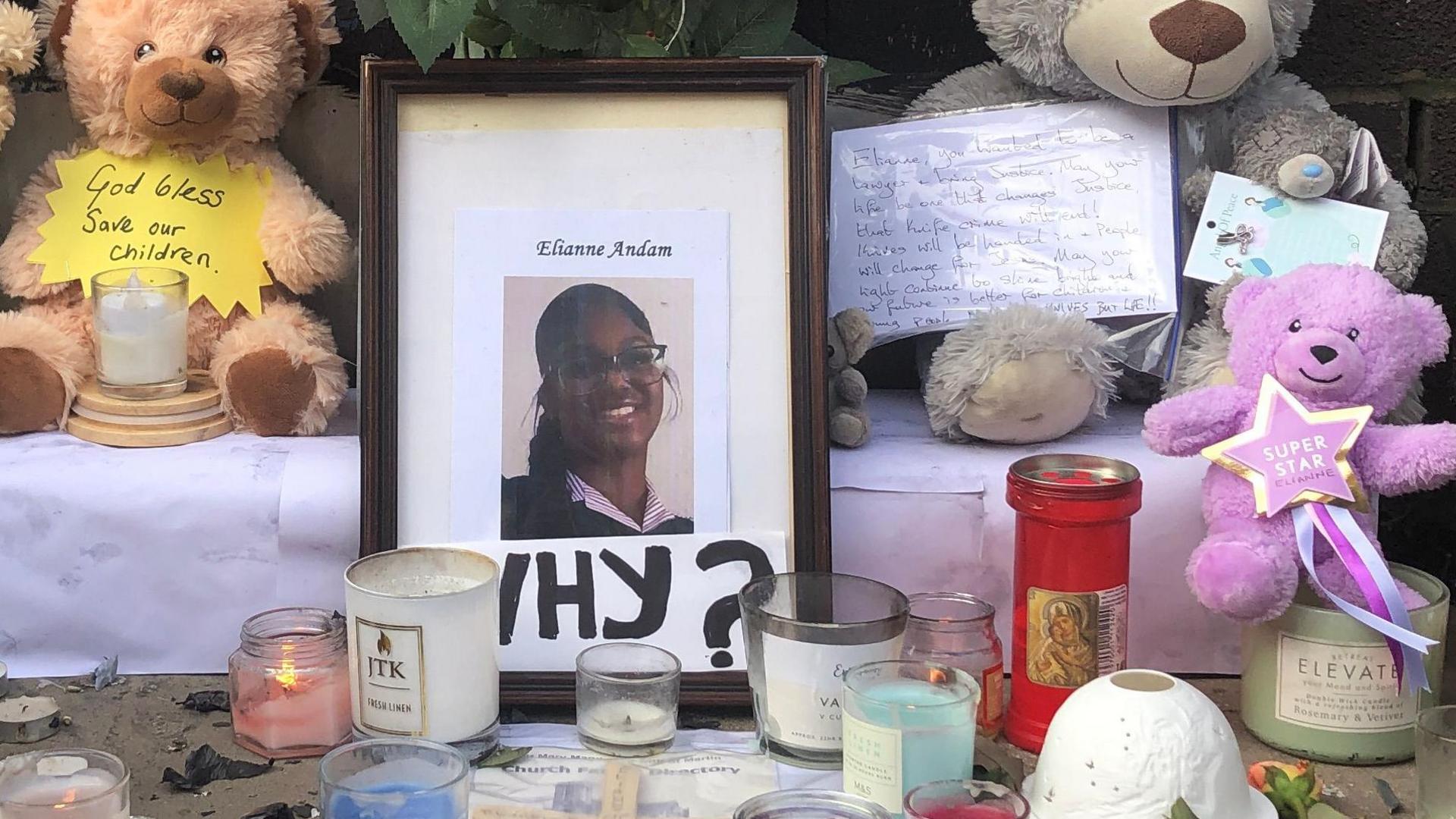
Listen to the best of BBC Radio London on Sounds and follow BBC London on Facebook, external, X, external and Instagram, external. Send your story ideas to hello.bbclondon@bbc.co.uk, external